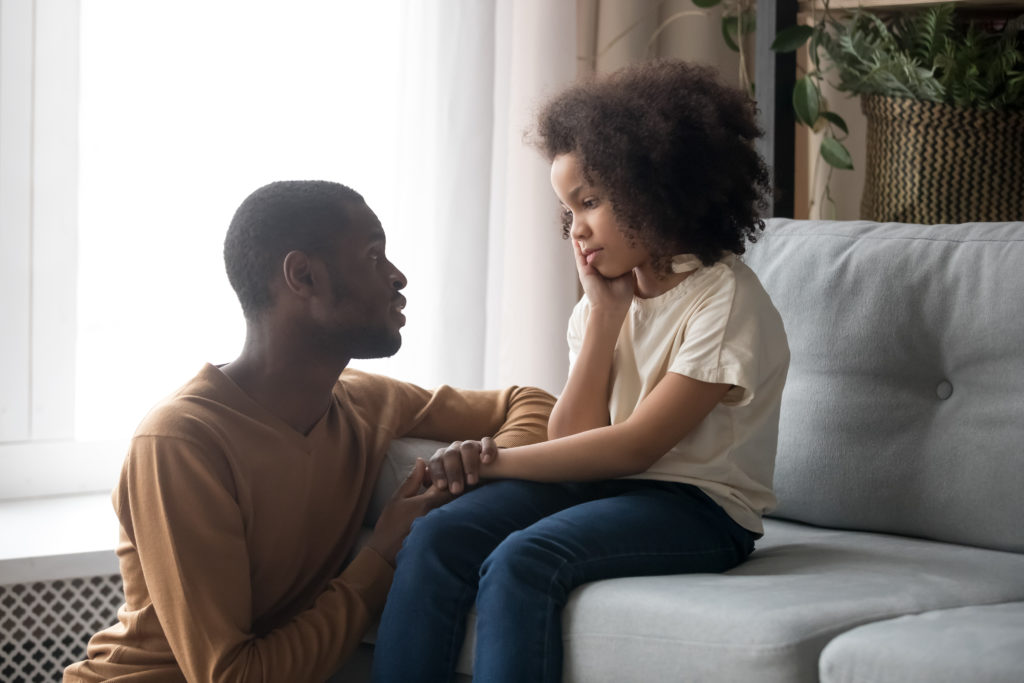Talking to kids about COVID-19
How to start a conversation with the children in your life about the pandemic and how it’s affecting them.

By Chelsea McGuire, MAC, LPC
Counseling Clinic Therapist
We are living in an uncertain time. All of us have been affected by significant stress and change. This especially applies to children who do not necessarily have the language or tools to describe how they are feeling.
If you’re a parent – caregiver – or teacher, you might be wondering how best to help children cope during the COVID-19 pandemic. We’ve put together four tips to help you put their minds at ease:
Be honest. Share age-appropriate facts about what is going on. Children tend to worry more when they don’t understand something. They will often fill in the blanks with false information to try and make sense of what is happening. Start a conversation with your child by asking how they feel about the changes to their normal routine. Invite them to ask you any questions that they might have. Let your child know that it’s okay to feel what they are feeling and help them figure out ways to handle these emotions in a healthy way.
Set the emotional tone for your child. While adults are certainly dealing with their own stressors and challenges right now, it’s important to be calm and reassuring when interacting with children. They will be observing your behavior and it is up to parents and caregivers to provide as much stability as possible. Make sure that you are taking care of your own emotions, and don’t hesitate to reach out to a mental health provider if needed.
Focus on what your family is doing to stay safe. Teach and model appropriate hand washing procedures and practice social distancing. Engage in virtual visits with family and friends to provide your child with the connections that they are missing. Challenge them to spread positivity by making cards for healthcare workers or nursing homes residents.
Lastly, work to maintain a sense of normalcy. While your children may not be going to school or able to see their friends, they are still able to learn, be active, use their imagination, and help out around the house. Stick to their regular routine as much as possible.
All of us are figuring out how to navigate this new way of life. The same goes for our children. If you find that your child is struggling with anxiety, depression, or behavioral concerns during this time, please don’t hesitate to reach out to a professional therapist for help.